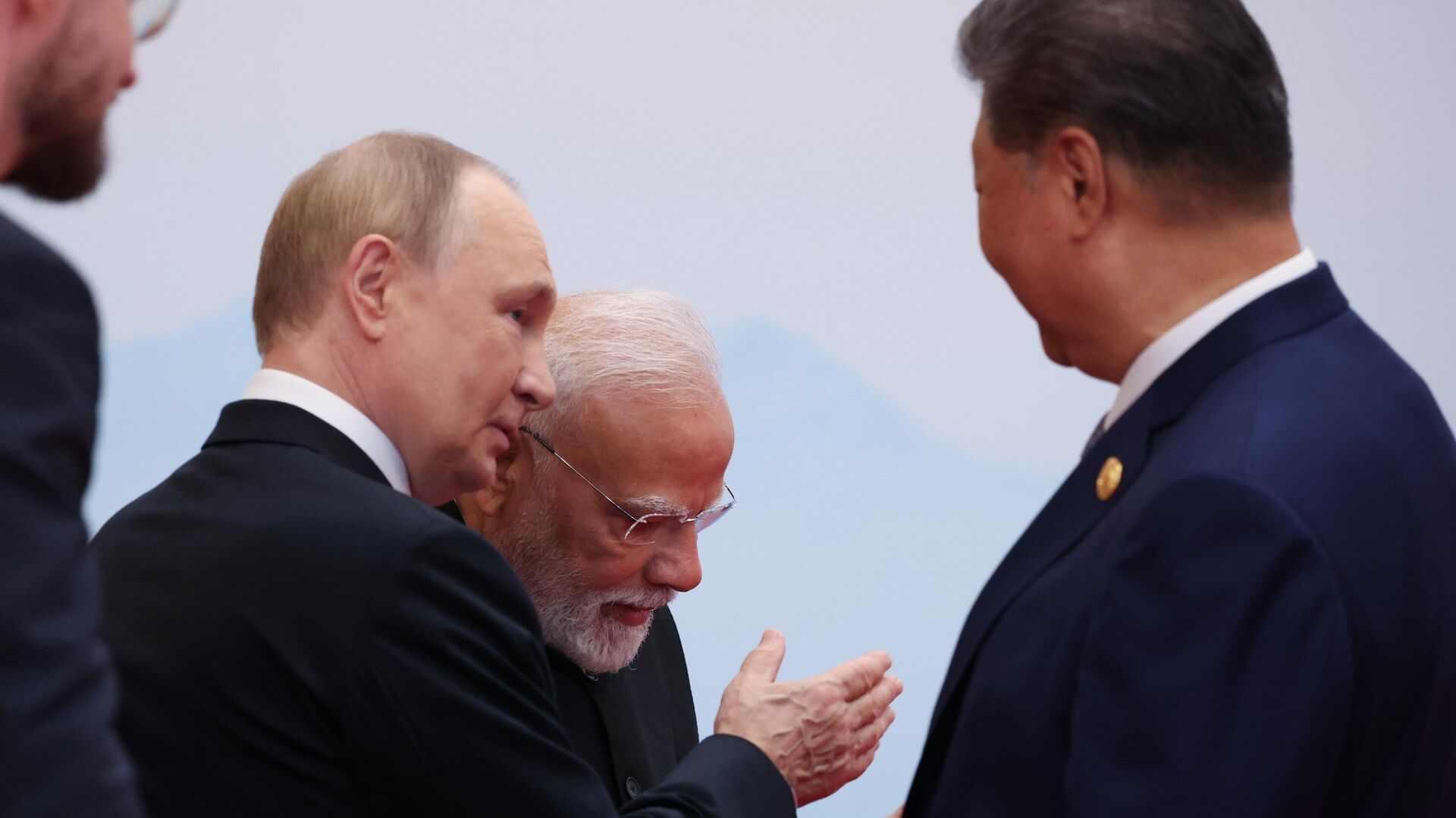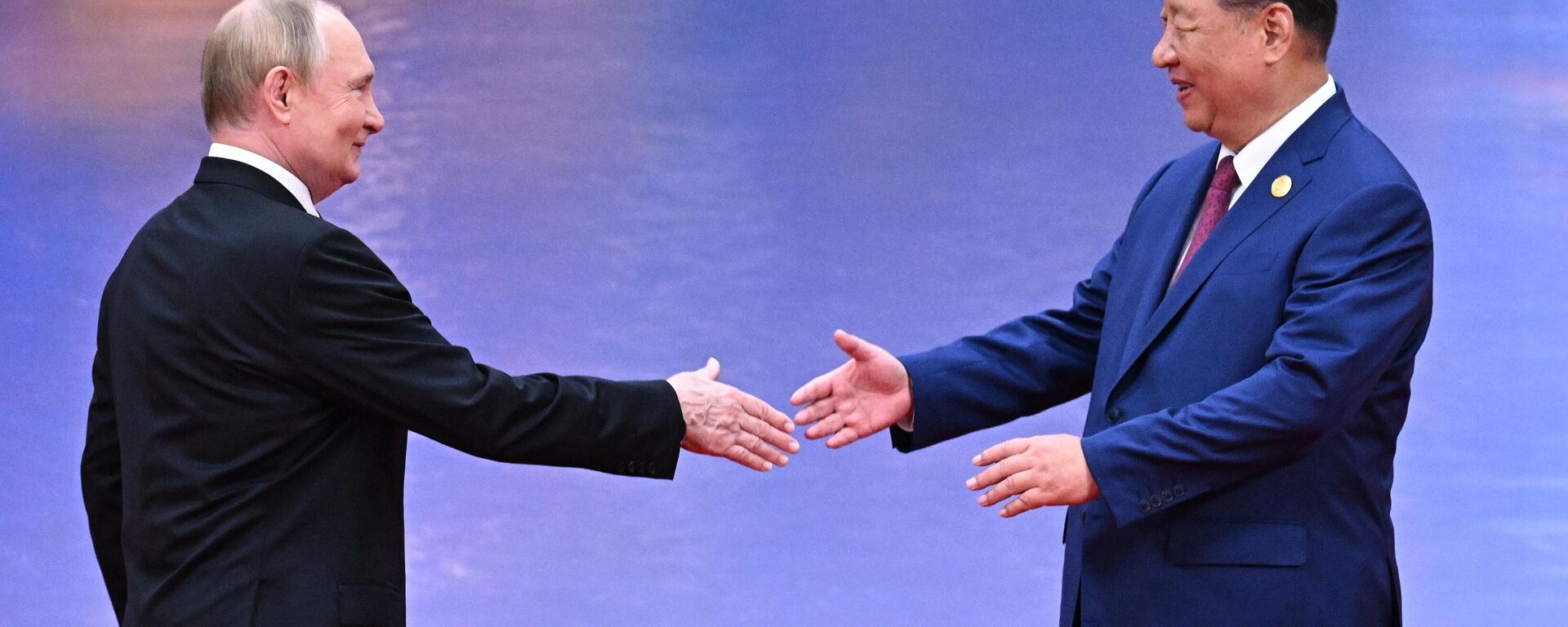India's Russia & China Engagement a Pushback Against American Economic Unilateralism: Experts
20:19 01.09.2025 (Updated: 20:21 01.09.2025)

© Sputnik / POOL
/ Subscribe
PM Modi held bilateral talks with President Putin on the sidelines of the Shanghai Cooperation Organisation (SCO) Summit, discussing cooperation between the two nations, including in the economic, financial, and energy sectors.
India's increasing engagement with China and Russia, highlighted by Prime Minister Narendra Modi walking hand-in-hand with Chinese President Xi Jinping and President Vladimir Putin of Russia during the SCO summit in Tianjin on Monday, should be viewed as a pushback against American economic unilateralism, experts have said.
"The way Trump is using tariffs to target countries is certainly changing the way nations look at the US and in particular in the context of India. There is a sense of disillusionment with the US and public anger is growing against the Trump administration. So this is certainly accelerating the process of India's engagement with Russia and China, where there can be a certain pushback against American economic unilateralism," Professor Harsh V Pant, a Visiting Professor at London's King's College and the Head of the Strategic Studies Programme at Observer Research Foundation in New Delhi, told Sputnik India.
This, in some ways, reflects that India's approach to its own foreign policy based on strategic autonomy will ensure that it will engage more with Russia and China despite the challenges that it faces, particularly in the context of the India-China relationship. While with Russia, it's different - India has had its historical relationship, time-tested relationship, and both India and Russia have stood by each other, he added.
"But with the West, the relationship is moving forward. I don't think that with China, there is any fundamental systemic shift happening. It's a tactical adjustment in some ways to the changing geopolitical and geo-economic realities. But with Russia, certainly there is a great degree of warmth based on the historical relationship and that is likely to continue and perhaps also move forward with a greater degree of alacrity," Pant underscored.
Multi-polarity certainly is very visible in the world today, and platforms like SCO and BRICS, though they are set up to pursue specific issues on the global governance agenda, are also reflective of this wider shift where power is shifting away from the West towards other actors. Particularly, challenging in some ways the dominance of the US in certain areas and that is being reflected through these institutions, he reckoned.
Meanwhile, Eerishika Pankaj, the Director of the New Delhi-based think tank, the Organisation for Research on China and Asia (ORCA), suggested that PM Modi's bilateral talks with President Putin can be seen as a subtle but clear message to the West that India will continue to pursue an independent foreign policy.
Besides, despite ongoing Western pressure over India's trade and defense ties with Russia, the meeting underscores New Delhi's commitment to strategic autonomy, she pointed out.
"Holding the talks within the multilateral SCO framework helps India balance optics—maintaining key ties without openly provoking Western partners, and show its role as an active player in a multipolar Asia. India can push forward trade negotiations with the Eurasian Economic Union, invest in connectivity projects like the Chabahar Port and the International North-South Transport Corridor (INSTC), and promote digital and fintech collaborations," Pankaj stated in an interview with Sputnik India.
There's also potential in energy partnerships and joint infrastructure projects. While challenges like limited connectivity and China's dominance within the SCO remain, India can still use the platform to build alternative trade routes and financial systems. This is not so much about reducing reliance on Western-controlled mechanisms, but also about putting Asian led financial institutions and frameworks on the same table, the think tanker emphasised.
On the other hand, BJP politician Savio Rodrigues stressed that Prime Minister Modi's engagement with President Putin reflects India's strategic clarity—its foreign policy is guided by national interest, not external pressure and Russia remains a trusted partner in defence, energy, and strategic security.
While some in the West continue to press India on its trade with Russia, India's position is clear: India will not compromise its long-term interests for short-term appeasement. The meeting was not a signal, but a statement—that India will engage with all global powers, on equal terms, to advance peace, stability, and growth. Strategic autonomy is the cornerstone of India's diplomacy, and it will remain non-negotiable, he observed.
"The SCO's opposition to unilateral tariffs is in line with India's own call for fairness in global trade. This opens up significant avenues for India to work with Eurasian partners—whether in energy, connectivity, agriculture, or technology. Through mechanisms like the International North-South Transport Corridor and greater use of local currencies, India can build resilient supply chains and reduce vulnerabilities created by protectionist measures," Rodrigues highlighted.
The message is clear: India seeks prosperity through partnerships, not protectionism. Within the SCO, India can drive a collective agenda that balances economic growth with strategic security, ensuring that Eurasia emerges as a pole of stability in a fragmented world, he concluded.


